Are you considering a move to Portugal for your retirement? It’s easy to see why the region has become a top choice for retirees from around the world. But even with its sun-drenched coastline and affordable cost of living, deciding on the best place to retire can be a challenge.
Do you prefer the countryside’s comfort and tranquility, a bustling metropolis with expat communities, or a picturesque historic town? In this guide, we’ll explore the best places to live in Portugal, where you can embrace the country’s unique blend of tradition and modernity and enjoy your golden years to the fullest.
You’ll also find out more about:

Regional Overview
Choosing a region to live in is an exciting part of the process. It’s important to think this through carefully, as buying property in a foreign country can be long and laborious. If you’re considering retiring in Portugal, you probably want to avoid repeating this process multiple times.
Below is a map breaking down the different regions in Portugal.
- Northern Portugal (Norte): Known for its historic cities, including Porto, and the Douro Valley, famous for wine production.
- Central Portugal (Centro): A region with charming towns like Coimbra and Aveiro, as well as mountainous landscapes.
- Lisbon Metropolitan Area (Área Metropolitana de Lisboa): Home to the capital city, Lisbon, and its surrounding coastal areas.
- Alentejo: A rural region known for its rolling plains, cork oak trees, and picturesque villages.
- Algarve: The southernmost region, celebrated for its stunning beaches, vibrant nightlife, and Mediterranean climate.
- Madeira: An autonomous archipelago in the Atlantic, famed for its subtropical climate and lush landscapes.
- Azores (Açores): Another autonomous archipelago, offering volcanic islands with breathtaking scenery and adventure opportunities.
For each area, we’ll share towns and cities that are popular with retirees, general vibes, cost of living, weather, popular activities, and pros and cons for each area of Portugal.
 Alentejo
Alentejo
The Alentejo region has long, un-spoilt stretches of golden beaches and a rich culinary culture. The famous black pigs are farmed in Alentejo, and you’ll find remote tascas (a Portuguese bistro) here with fantastic local cuisine and seafood.
If you are looking for a beachy lifestyle with lots of quiet and calm, Alentejo might be the place for you. One thing to be noted is that it’s a more Portuguese-speaking-only region than others, and there will be less of an expat community, so if you want to have a bustling social life with people more like yourself, Lisbon or Porto could be a better choice.
Popular towns in Alentejo
Evora
Evora is an incredibly well-preserved medieval town and a protected UNESCO World Heritage site. Strolling through the ancient cathedrals and cloisters will take you back to the 14th century. The university in the city keeps the town’s demographics mixed and lively.
Sines
Perched on the tip of the Sines cape, this beautiful seaside village is just 150km from Lisbon. The weather in Sines is fairly mild year-round but can get windy due to its exposed position. Sines is also home to the famous Portuguese explorer Vasco de Gama.
Elvas
Lying right on the border with Spain, Elvas is the most fortified region of Portugal due to the historical threat of invasion. This makes Elvas a marvel to look at and a worthwhile place to visit. There are many fewer tourists visiting Elvas due to its position, so far over towards Spain, and this might be a bonus point to you in your choice of a place to retire.
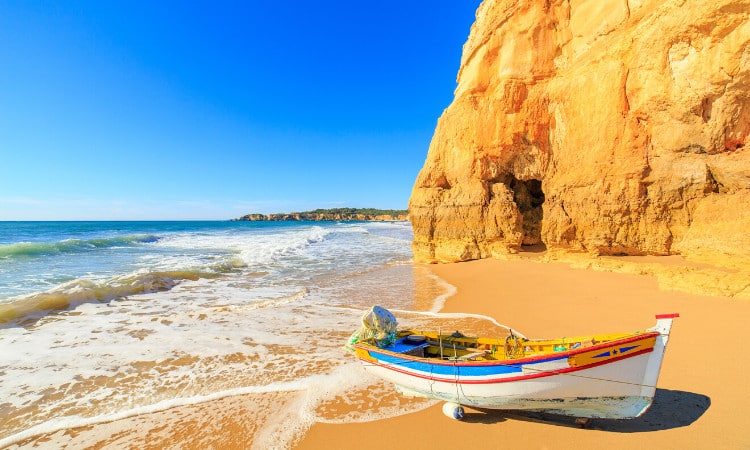
Algarve
The Algarve is one of the most popular choices for expats and tourists. It also has stunning beaches, coastlines, and beautiful rock formations to marvel at. Additionally, it is here were there are the most English-speaking retirement communities in Portugal and one of the best places to retire in Portugal for US citizens.
The weather is always a few degrees warmer than Lisbon, which makes it a popular place for retirees. The main cities of Lagos, Albufeira, and Faro have busy days and nightlife with local markets, bars, and restaurants.
One thing to note is that there are many tourists in Lagos and Albufeira, so if you think of permanently residing in the Algarve, you might be more inclined to look for somewhere with a bit more local charm and authenticity.
Popular towns in the Algarve
Lagos
Lagos is a naturally beautiful place. There are windswept dunes, natural grottoes in the cliffs, and long golden sandy beaches. However, because of this beauty, the region is overrun with tourists and is a highly seasonal place. It should be noted that in the summertime, the tourists can get rowdy downtown, and the town’s seasonal discos will go on all night long.
Lagoa
A very small place in the south of the island, with just 14,000 inhabitants. Weather is mild year-round, with hot, sunny summers.
Tavira
In addition to being a gorgeous small town, Tavira has saltpans that attract wading birds like flamingos and spoonbills. Tavira also has a medieval center with a castle and beautiful views. Tavira is popular as a tourist destination but not as busy as Lagos or Sagres.
Faro
Faro is a little more touristic than Tavira, but it also has more beaches accessible by foot. Many people won’t stay in Faro; they simply fly into the airport and elsewhere. However, it’s a very beautiful place to be in the ancient city. It has a Gothic cathedral and a lovely pedestrianized shopping area. The saltwater lagoons make great birdwatching opportunities, too.
Albufeira
Possibly the most popular town for holidaymakers in the Algarve. It is also the largest and most lively of the towns in the Algarve. If you are looking for more rustic, Albufeira is perhaps not the right place as what once was a small fishing village is now a bustling and lively beachside town.
 Azores
Azores
The Azores islands are really one of Portugal’s best-kept secrets. Impressive mountain and rock formations, as well as fertile land, make the islands a very beautiful and peaceful place to be.
They are also famous for producing a strong-tasting cheese eaten all across Portugal, Queijo de São Jorge or Queijo de Ilha. The climate is warm and wet year-round; it might be described as tropical.
Lush vegetation and deep blue Atlantic waters categorize the aesthetic of the marvel of nature that is the Azores islands.
Popular towns in the Azores
Ponta Delgada
The capital of the Azores and often the entry point of many visitors to the island, the city is the most populated part of the island. However, by no stretch is this a busy and loud city, but it still has all the tranquility and peace you would expect from the Azores.
Madalena
Madalena is a truly special place to witness, in terms of its lavish green nature against the backdrop of blue Atlantic. The Azores are considered to be one of the seven wonders of Portugal, however as a retiree unless you are very reclusive, you might end up feeling a bit isolated here. Particularly if you don’t speak the language.
 Central Portugal
Central Portugal
Central Portugal would probably not be the most obvious choice for retirees. Whilst it’s not the beach, and not the city, towns like Coimbra might prove too pretty to ignore. Coimbra is home to a big university, so has a young and buzzy feel to it despite being fairly remote.
Popular towns in central Portugal
Nazaré
Nazaré has a large number of tourists visiting in the summer for surfing, in particular, as its half-moon-shaped beach has lots of natural beauty and a warm and mild climate. The town still has a lively tradition of fishing, and the fishmongers still wear the seven traditional skirts.
Leiria
Being a university town, Leira has a great mix of ancient architecture and modernity brought by the lively students. The castle is built high above the town and can be seen from many different points in the city. This central Portuguese town is not number one on the tourist trail but might be a nice place to consider retiring.
 Lisbon Metropolitan Area
Lisbon Metropolitan Area
Lisbon is a great choice for retirees, particularly as it offers the best of both worlds: You can be part of a fairly busy, bustling city and also escape to the countryside and beaches in just 30 minutes.
The Greater Lisbon metropolitan has around 3 million inhabitants and reaches a total area of about 3,000 square kilometers (1158 square miles).
The lovely Tagus river surrounds it and has some great views from its famous seven hills. It’s also a short bus, train, or boat ride to the beaches near the city.
When retiring, getting a place in Lisbon might be the best option if your used to doing a lot of activities and seeing a lot of people. With all that’s happening in Lisbon, it would be hard to get bored or feel lonely in this city.
Popular towns in the Lisbon Metropolitan Area
Lisbon
Lisbon metropolitan area can get crowded and overrun by tourists at times, but you will have the opportunity to visit Fado concerts, restaurants, bars and exhibitions as Lisbon is the capital of Portugal and offers many attractions to its inhabitants and tourists. The prices of property in Lisbon are the highest in Portugal, particularly in the central and sought-after areas. But with that said, Lisbon is one of the best places to live in Portugal.
Cascais
The region of Cascais is popular amongst retirees, because it’s close enough to the city of Lisbon but feels more remote, as it’s on the beach and has more rural surroundings. There are still a whole bunch of cafés and restaurants that cater to the local and tourist populations here. Cascais prices are a little lower than Lisbon as its outside of the city.
Sintra
There are lots of tourists visiting Sintra in the summertime. What used to be the escape from the summer city heat for the Portuguese royalty is now like a large museum town, where you can explore the palaces with guides or alone.
The beaches and countryside surrounding Sintra are breathtaking. Sintra property prices drop dramatically from Lisbon’s, and if you like a rural lifestyle close to the city, this could be the best option.
Estoril
On the way to Cascais, Estoril has many luxury hotels, and a casino that inspired the James Bond 007 film Casino Royale. Estoril is a popular place to retire again as it’s a fairly quiet place, with nice beaches and a warm sunny feeling about it.
Setubal
Setubal is known as the best place to eat real seafood in Portugal. Many of the oysters come from here, and the beaches and scenery here are really very beautiful. This again is a great option for retiring close to the city of Lisbon but benefitting from a more rural lifestyle and lower prices.
 Northern Portugal
Northern Portugal
Northern Portugal’s Porto is a lively city with plenty of things to do. It’s being thought of increasingly amongst foreigners who want to relocate to Portugal. The town is traditionally a fishing village situated on the Douro River.
Porto is famous for the fortified Port wine. The interesting architecture also put Porto on the map for tourists. Porto is the second most expensive city in Portugal to live in, but you will still find considerably lower prices for property here than in Lisbon.
Popular towns in Northern Portugal
Porto
The town of Porto itself is vibrant and happening, steeped in rich history and tradition.
Coimbra
Coimbra is a very old university town with a medieval feel coming from its ancient university. You’ll also find plenty of Fado here.
Chaves
A city in the North of Portugal, just a short 10km from the Spanish border. It’s a fairly small place with just 41,000 inhabitants. However, if you are looking for the cheapest place to retire in Portugal, Chaves might be a good option.
Braga
Considered the religious center of Portugal, Braga is a great place to spend time soaking up the culture and history. When in Braga, one can hear church bells all day long! Braga has the oldest cathedral in Portugal.
 Madeira
Madeira
Madeira is a stunning place, partly because it sits on a dormant volcano. The dark and rocky landscape adorned with colorful flowers and tropical fruits makes Madeira quite a special place to look at.
There are dramatic drops into the deep blue ocean and black sand beaches. Of course, the warm climate the whole year round is a big bonus for Madeira’s inhabitants. The volcanic soil is also incredibly fertile,, so one can wonderfully grow vegetables and exotic fruits here.
Madeira stays warm in the winter at around 15-20 degrees at the lowest point. There are plenty of British, American, and German retirees here, so the expat community is already going strong here, and retirement here wouldn’t feel lonely.
Inhabited islands of Madeira
Funchal
A beautiful city with old colonial-style buildings and magical courtyards dotted through the city. Don’t miss the cable car that takes you up to Funchal Botanical Gardens and gives you a spectacular view of the city and its coast.
Property in Funchal is not the cheapest, as it’s a popular place with Portuguese and foreigners alike. Since the tunnels have been built, surrounding towns are a good option to get a better bargain on real estate and perhaps a bit less hectic.
Porto Santo
The smallest of the Portuguese archipelago of Madeira. Although isolated, we would recommend retiring here as it’s known for its warm waters, great diving opportunities, and the unspoilt long Porto Santo Beach.
Whatever it is you are searching for in choosing a place to retire in Portugal, make sure you have considered what it will be like to live full-time in a place. It might be a big expat community that you’re looking for, or a quiet and remote place to retreat to.
But if you have weighed up the options properly, we hope you can make a choice you are overjoyed with!
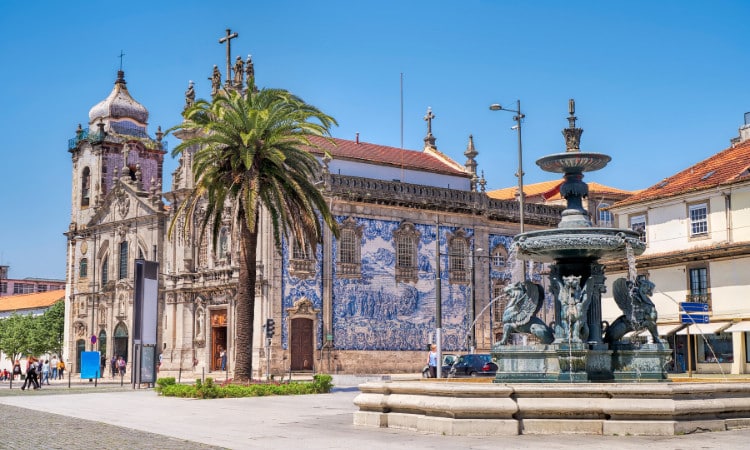
Immigrating to Portugal: A very brief overview
Applying to immigrate to Portugal while still in your home country might sound daunting – but don’t get discouraged!
It’s a fair amount of planning and paperwork but a pretty straightforward process. Just make sure you’re organized and diligent about getting your documents in order, and you should have no problems.
Our best advice to anyone wanting to retire in Portugal is to always work with trusted professionals. If you’re unsure how to navigate any portion of the process, find an experienced lawyer, accountant, real estate agent, or immigration assistance service to help.
You might be able to manage some parts on your own – say, compiling your visa paperwork – but need help with taxes or finding a home. Let the professionals do what they do best. And if you’re not sure who to choose, start by asking friends or online expat forums for recommendations.
There are several thriving Facebook groups for expats in Portugal. That’s a great place to start. For more information on the Golden Visa Program, read our article here.
Have no fear, there are also other visas that you can get if you want to retire in Portugal, without this kind of capital contribution. Also, check out our article, How to Retire in Portugal: A Complete Guide for Expats.
 What to expect when retiring in Portugal
What to expect when retiring in Portugal
By the time you are ready to retire, you’re probably looking for a slower pace of life, and a chance to sit back, relax and get stuck in with your personal hobbies. Portugal is certainly a great place to realize these dreams.
The Portuguese culture, in essence, is about taking a slower pace in life and finding more time for personal life and time spent with family. The local’s attitude is normally friendly and welcoming to foreigners and retirees. Many of the Portuguese residents are usually very helpful and will try to speak to you in English if they can.
In 2017, there were a recorded half million documented migrants living in Portugal, so you won’t be the first person to have had the idea to relocate here. Portugal lends itself well to retirees from across the globe for a number of reasons.
One of the big selling points of Portugal is the beautiful, warm weather year-round. There is a delectable slowness to life in Portugal and an appreciation for the simple things in life, like standing at the counter of a local bar to have a 60-cent espresso and custard tart in the morning. That just doesn’t exist anywhere else anymore!
Frequently Asked Questions
Where is the best place to retire in Portugal?
The best place to retire in Portugal depends on your interests. If you’re a beach lover, the best spots will probably be in the Algarve. If you like cities, check out Lisbon or Porto. Portugal also has beautiful vineyards, farms, mountains, and quaint villages throughout the country.
How much does it cost to retire in Portugal?
It costs different amounts to retire in Portugal based mostly on your lifestyle. If you’re in a more urban area like Lisbon or Porto, a couple will need at least €2,400 a month to get by comfortably. But in smaller villages, a couple could get by on as little as €1,400 per month.
Where do expats live in Portugal?
Expats live in cities, towns, and villages all over Portugal. A few places that are popular with expats in Portugal include areas like Faro or Lagos in the south, or Porto in northern Portugal. Lisbon and nearby Cascais are also popular with expats, especially those moving from the US.
Can I retire in Portugal?
Yes, you can retire in Portugal. You’ll navigate a lot of paperwork and bureaucracy, of course, and you’ll have to apply for a visa. The visa you apply for will allow you to move to Portugal for the purposes of retirement.
Is the Algarve the best region to retire in Portugal?
The Algarve is often considered one of the best regions for retirees due to its beautiful coastline, affordable cost of living, excellent healthcare, and warm climate. The region offers picturesque beaches, charming towns like Tavira and Lagos, and a large expatriate community that makes integration easier.
How does Cascais compare to other retirement destinations in Portugal?
Cascais, near Lisbon, offers a more upscale retirement option with a blend of natural beauty, high-quality amenities, and vibrant cultural life. It provides easy access to Lisbon and its airport, making it a convenient location for frequent travelers. While the cost of living is higher than in the Algarve, the quality of life, safety, and international community make it a strong contender.
What are the benefits of retiring in Porto, Portugal?
Porto is known for its rich history, affordable cost of living, and excellent healthcare. It offers a more urban yet relaxed atmosphere compared to Lisbon, with access to the Douro River Valley and its wine region. Porto is ideal for retirees looking for a mix of cultural activities and modern amenities at a lower cost.
Why is Lisbon a popular retirement destination in Portugal?
Lisbon is Portugal’s capital and offers a dynamic lifestyle with a mix of history, culture, and modern conveniences. It’s particularly attractive for retirees who value access to international airports, diverse dining options, and world-class healthcare. However, it is one of the more expensive areas in Portugal.
Are there affordable places to retire in Portugal?
Portugal has several affordable retirement destinations, such as Tavira and Lagos in the Algarve, as well as smaller towns like Coimbra and Braga. These areas offer lower living costs while still providing access to healthcare, leisure activities, and a welcoming community.
What is the cost of living in the best places to retire in Portugal?
The cost of living in Portugal is generally lower than in most Western European countries. Monthly expenses for a single retiree can range from €1,200 to €2,000, depending on the location and lifestyle. Lisbon and Cascais are more expensive, while the Algarve and Porto offer more budget-friendly options.
Which coastal towns in Portugal are ideal for retirees?
Coastal towns like Tavira, Lagos, and Albufeira in the Algarve are particularly attractive for their natural beauty, vibrant communities, and relaxed lifestyles. Other popular options include Cascais, with its upscale amenities, and Nazaré, known for its charming fishing village atmosphere and affordability.


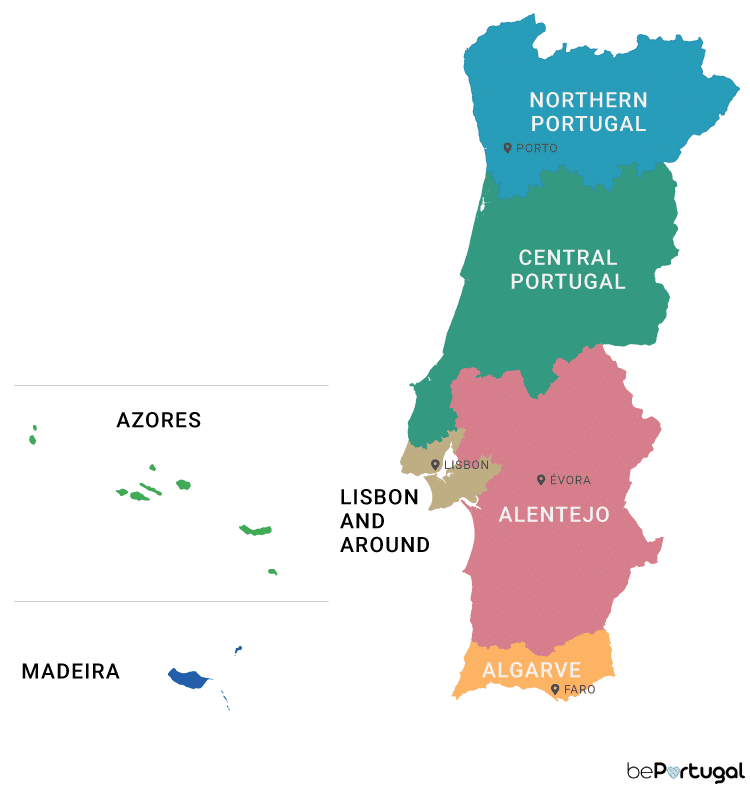
 Alentejo
Alentejo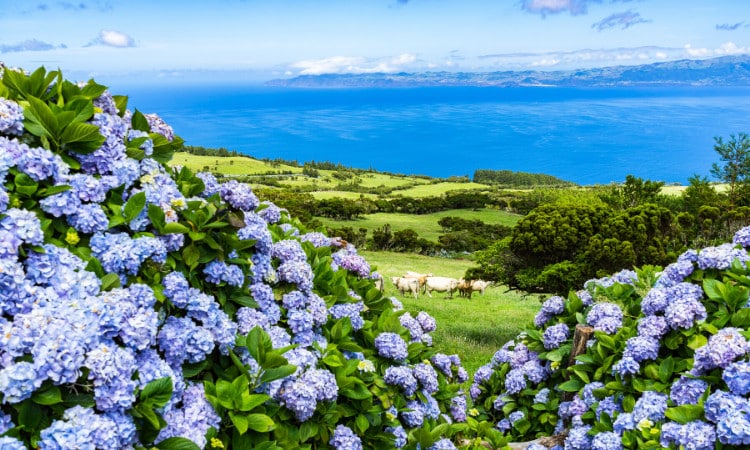 Azores
Azores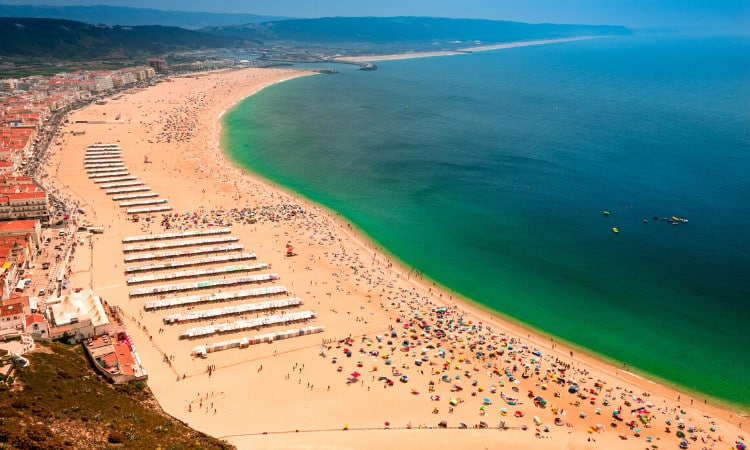 Central Portugal
Central Portugal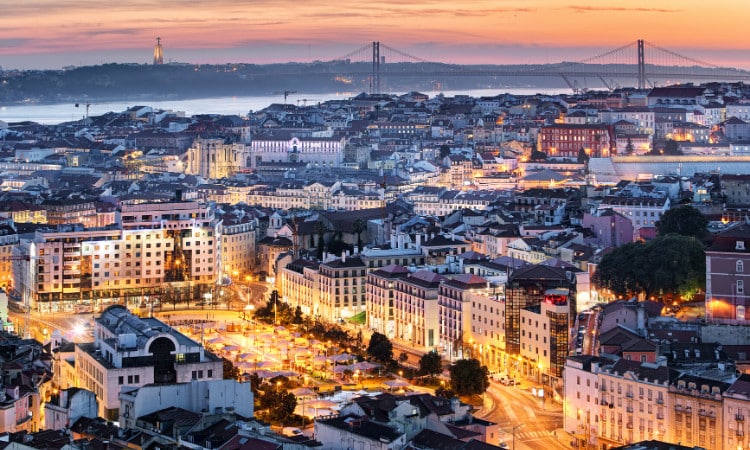 Lisbon Metropolitan Area
Lisbon Metropolitan Area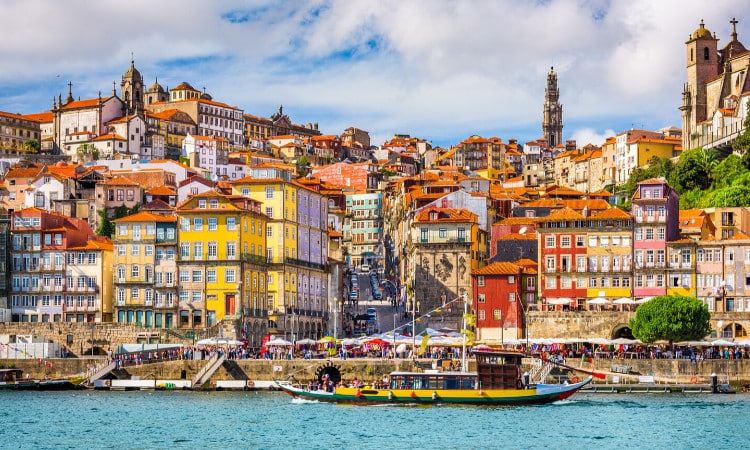 Northern Portugal
Northern Portugal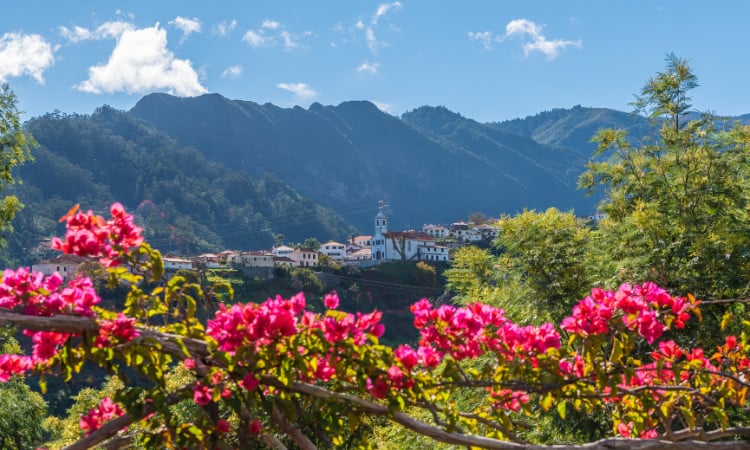 Madeira
Madeira What to expect when retiring in Portugal
What to expect when retiring in Portugal




